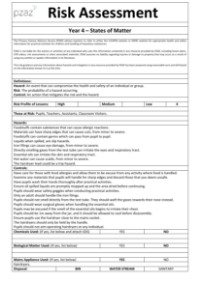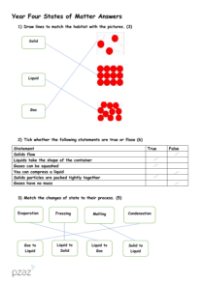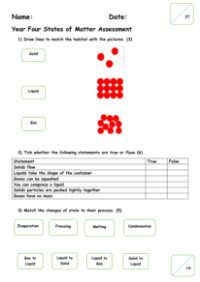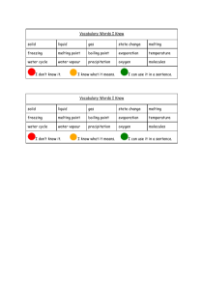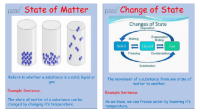States of Matter - Knowledge Organisers
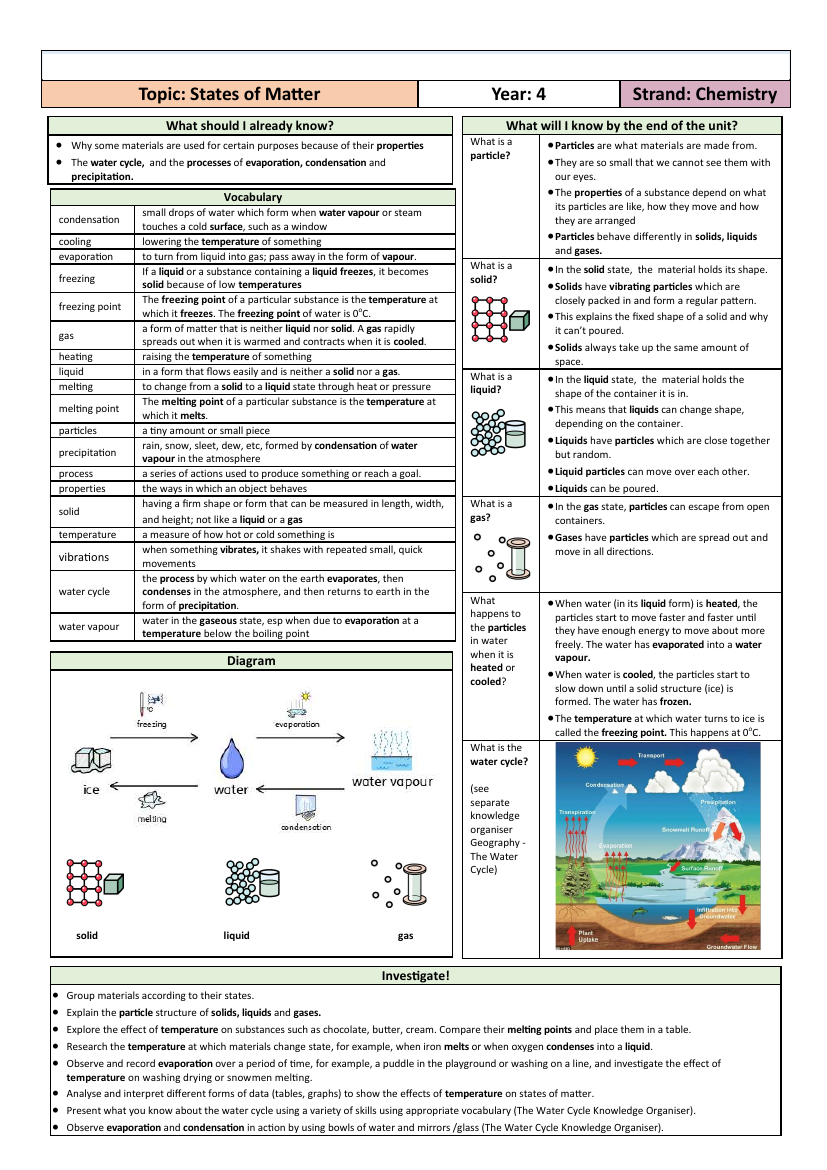
Science Resource Description
Students in Year 4 exploring the topic of States of Matter in Chemistry will delve into the fundamental concepts of how materials exist in different forms: solids, liquids, and gases. Prior knowledge required includes understanding why certain materials are chosen for specific uses based on their properties, as well as the water cycle, encompassing the processes of evaporation, condensation, and precipitation. Key vocabulary terms such as condensation, evaporation, and freezing point are introduced, each with clear definitions to aid comprehension. For instance, condensation is described as the formation of small water droplets when water vapour comes into contact with a cold surface.
Throughout the unit, students will engage in investigative activities, including grouping materials by their states and examining the particle structure of different states of matter. They will explore how temperature affects substances like chocolate and butter, and research the temperatures at which various materials change state. Practical observations of evaporation and the recording of changes over time, such as a drying puddle or melting snowman, will highlight the impact of temperature. By the end of the unit, students will have a solid grasp of particle theory, understanding that the arrangement and movement of particles determine the properties of solids, liquids, and gases. They will also be able to explain the water cycle and the transitions between different states of matter, such as the freezing of water at 0°C and the processes that cause a puddle to evaporate.


